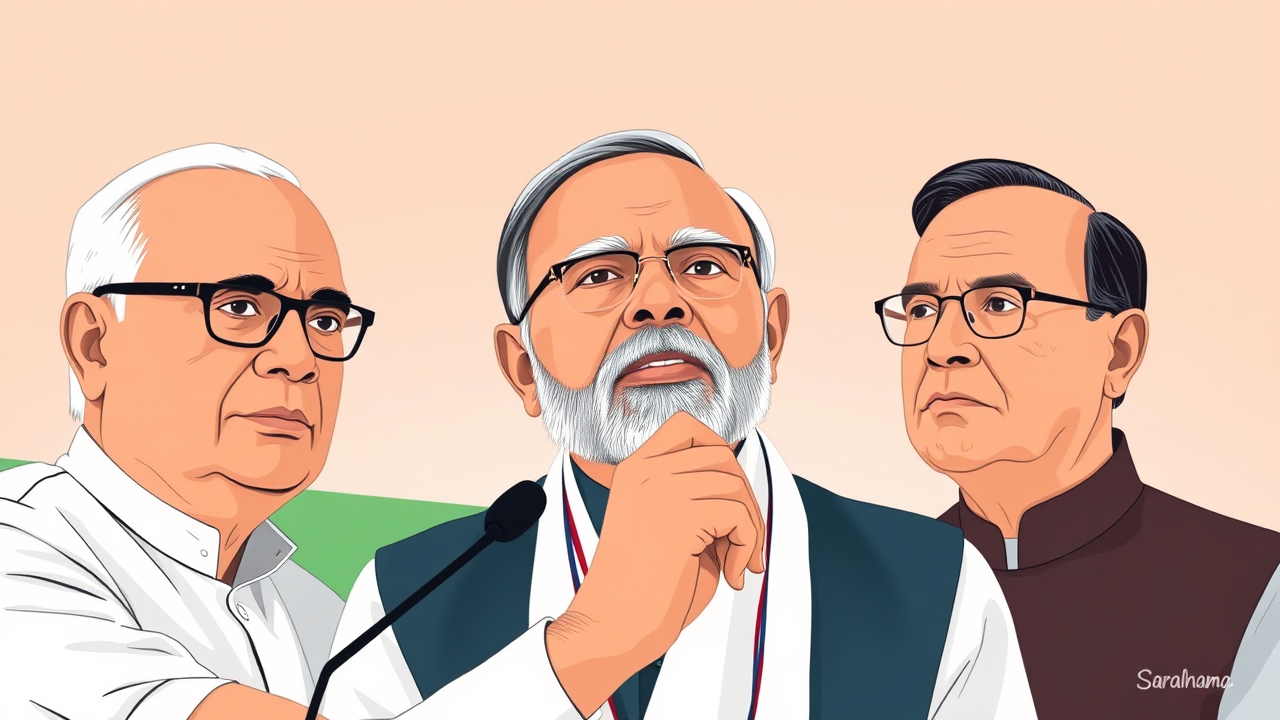The Congress party faces growing internal confusion and criticism after suffering its fourth consecutive major defeat in state elections, this time in Bihar. The grand old party won only six seats, down sharply from 19, while its ally RJD managed just 25 seats, its worst performance in 15 years. The NDA secured a landslide victory across regions, castes, genders, and age groups. Within the Congress, leaders offered conflicting explanations for the defeat. While communications chief Jairam Ramesh blamed large-scale vote manipulation and targeted the Prime Minister, Home Minister, and Election Commission, party president Mallikarjun Kharge avoided such accusations and pledged to respect the people's mandate. Rahul Gandhi claimed the election was unfair from the start. These divergent responses highlight the disarray within the party and the broader Opposition, which had celebrated reducing the BJP to 240 seats just over a year ago. Following defeats in Maharashtra, Haryana, and Delhi (with only Jharkhand providing relief), Opposition parties now face an existential question: how to counter the BJP's effective blend of caste coalitions, welfare schemes, and varied Hindutva interpretations. Senior leaders have called for serious introspection and a complete rethink of strategy and messaging.

Contradictory Responses from Congress Leadership
After the Bihar results, top Congress leaders sent out mixed signals. Jairam Ramesh accused the ruling establishment of gigantic vote manipulation orchestrated by the Prime Minister, Home Minister, and Election Commission. In contrast, Mallikarjun Kharge refrained from mentioning vote theft and instead stated that the party respects the people's verdict. He promised a thorough study of the results and vowed to continue the fight to protect constitutional institutions. Rahul Gandhi took a middle path, calling the outcome startling and claiming the election was not fair from the beginning. These contradictory statements exposed the confusion within the party. Several senior leaders privately criticized the lack of a unified message and questioned the absence of a coherent strategy to counter the BJP's dominance.
Flawed Campaign Strategy and Weak Narratives
The Congress campaign in Bihar suffered from multiple weaknesses. Rahul Gandhi focused heavily on voter list revision and vote theft allegations, which failed to resonate with ordinary voters. The party also emphasized social justice and caste census, but these issues had limited impact since Bihar had already conducted caste enumeration under Chief Minister Nitish Kumar. The central government's decision to include caste data in the national census further diluted the demand. Meanwhile, ally RJD leader Tejashwi Yadav campaigned on employment promises, creating a disjointed message across the alliance. Senior Congress leaders admitted privately that the vote theft narrative was misplaced, noting that similar slogans in previous elections had also failed. Some leaders said cash transfer schemes influenced voters, while others pointed to poor coordination among alliance partners.
Calls for Serious Introspection Within Opposition
Several Congress leaders and Opposition allies acknowledged the need for urgent soul-searching. Senior leader Shashi Tharoor called the performance seriously disappointing and urged detailed analysis of tactical, messaging, and organizational failures. Karnataka Deputy Chief Minister D K Shivakumar described the results as a lesson for the party and the INDIA bloc, promising a new strategy moving forward. Some leaders complained that Congress demanded too many seats during negotiations but failed to win most of them, hurting overall alliance performance. Others criticized the party's over-reliance on ideological opposition to the BJP and RSS, arguing that simply attacking Prime Minister Modi without addressing real issues was insufficient. Samajwadi Party chief Akhilesh Yadav claimed electoral conspiracy, while NCP leader Supriya Sule credited the victory to Nitish Kumar.
Source: Link
